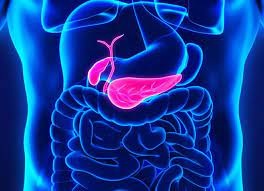Stomach Cancer Awareness, also known as gastric cancer, is a serious health condition that affects thousands of individuals worldwide each year. It is important to raise awareness about this disease, as early detection can significantly improve outcomes. In this article, we will discuss the risks and symptoms of stomach cancer, as well as ways to reduce your risk.
Understanding Stomach Cancer
Stomach cancer occurs when cancer cells form in the lining of the stomach. The exact cause of stomach cancer is unknown, but several factors can increase the risk of developing the disease. These include:
- Age: Stomach cancer is more common in older adults, with the majority of cases occurring in individuals over the age of 65.
- Gender: Men are more likely to develop stomach cancer than women.
- Diet: A diet high in salty, smoked, or pickled foods can increase the risk of stomach cancer.
- Smoking: Tobacco use has been linked to an increased risk of stomach cancer.
- Family history: Individuals with a family history of stomach cancer are at a higher risk of developing the disease.
Symptoms of Stomach Cancer
The symptoms of stomach cancer can vary, but common signs include:
- Indigestion: Persistent indigestion or heartburn can be a sign of stomach cancer.
- Unexplained weight loss: Losing weight without trying can indicate a problem with the stomach.
- Loss of appetite: A sudden loss of appetite or feeling full after eating small amounts of food can be a symptom of stomach cancer.
- Abdominal pain: Persistent abdominal pain, particularly in the upper abdomen, should be evaluated by a healthcare professional.
- Nausea and vomiting: Frequent nausea and vomiting, especially after eating, can be a sign of stomach cancer.
Reducing Your Risk
While the exact cause of stomach cancer is unknown, there are steps you can take to reduce your risk:
- Eat a healthy diet: Include plenty of fruits, vegetables, and whole grains in your diet, and limit processed and red meats.
- Quit smoking: If you smoke, quitting can reduce your risk of stomach cancer, as well as other health conditions.
- Limit alcohol consumption: Excessive alcohol consumption has been linked to an increased risk of stomach cancer.
- Maintain a healthy weight: Being overweight or obese can increase your risk of developing stomach cancer.
- Get screened: If you have a family history of stomach cancer or other risk factors, talk to your healthcare provider about screening options.
Conclusion
Stomach cancer is a serious health condition that requires early detection and treatment. By raising awareness about the risks and symptoms of stomach cancer, we can help individuals take proactive steps to reduce their risk and improve their overall health. If you or someone you know is experiencing symptoms of stomach cancer, it is important to seek medical attention promptly.


No comments yet